Category: Terminal Illness
Articles about terminal illnesses that one typically sees and cares for on hospice.
Articles about terminal illnesses that one typically sees and cares for on hospice.

Discover the potential side effects of dementia medications and how to support your loved one.
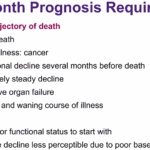
Discover the true nature of hospice care in the U.S. This guide clarifies eligibility, focusing on comfort for those with a terminal prognosis of six months or less, and the support available for families and caregivers during this journey.
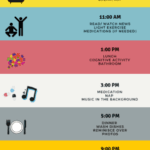
Maintaining routines and consistency can significantly improve the overall well-being and quality of life of a loved one with dementia. As a caregiver, understanding the value of routines and how they can positively impact your loved one's journey through dementia is crucial. In this article, we'll explore why routines matter, how to establish them, and their benefits to patients and caregivers.

Discover gentle methods to encourage dementia patients to bathe. Learn how to create a positive bathing experience, use distraction techniques, and maintain a consistent routine. These compassionate approaches help caregivers navigate hygiene challenges while preserving dignity and reducing stress for both patient and caregiver.
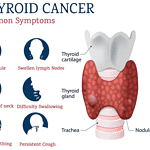
Thyroid cancer presents challenges not just for patients, but also for their families. My role is to be your guide, as a dedicated hospice registered nurse case manager, throughout the various stages of this disease. I'm here to equip you with the essential knowledge needed to provide compassionate care for your loved one. In this article, we will delve into what you should anticipate during the course of thyroid cancer, how to identify changes in your loved one's condition, and how to offer optimal care from the initial diagnosis to the end-of-life journey.

Welcome to our discussion on a topic close to many hearts: the care of our loved ones with dementia. When a family member is diagnosed with dementia, it feels like a part of them slowly fades away. But as they lose parts of themselves, your role in their life becomes even more crucial. This article isn’t just words on a page; it’s a beacon of hope and understanding, shining a light on why your voice, as a family member, is vital in the care of your loved one.

When caring for a loved one with dementia, it's important to approach their needs with empathy and understanding. Dementia is a progressive condition that affects memory, thinking, and communication. As a caregiver or family member, it's crucial to adapt your communication style and strategies to best support your loved one. This article will guide you through the stages of dementia, address common symptoms like anxiety and agitation, provide techniques to reduce caregiver burnout, create a calm environment, and effectively respond to repetitive questions.
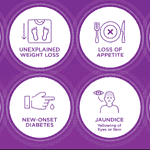
Dealing with a loved one's diagnosis of pancreatic cancer can feel overwhelming but remember that you are not alone in this journey. As an experienced hospice nurse specializing in compassionate care, I am here to support and guide you through the process, providing you with the information you need to understand what to expect as the disease progresses and how to provide the best care for your loved one at every stage.
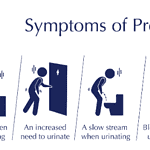
Navigating the path of prostate cancer can be challenging for both patients and their families. As a hospice registered nurse case manager specializing in end-of-life care, I offer you crucial information, guidance, and unwavering support. In this article, we will delve into the journey of prostate cancer, equipping you with insights about what to anticipate, how to identify changes in your loved one's condition and the optimal approaches to caregiving from diagnosis to end-of-life. Throughout this article, I aim to present information clearly and empathetically that resonates with your needs and comprehension.
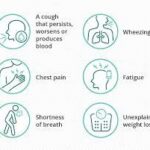
Lung cancer presents a difficult path for both individuals facing illness and their loved ones. As a dedicated hospice registered nurse case manager specializing in end-of-life care, my purpose is to equip you with essential insights. This guide aims to enlighten you about the stages of the disease, detecting crucial shifts in your dear one's condition, and delivering optimal care from inception to closure. By sharing this knowledge, my intention is to empower you to provide tender and considerate assistance throughout this profound journey.

Discover compassionate approaches to nourishing terminally ill loved ones. Learn about appetite changes, feeding techniques, and the importance of emotional support during meals. This guide offers practical tips for caregivers to ensure comfort and dignity while addressing nutritional needs in end-of-life care.

Caring for a loved one with dementia can be challenging. One common struggle caregivers face is ensuring their loved one takes their medications. Dementia can make understanding and remembering medications difficult. In this guide, we'll explore effective strategies for encouraging your loved ones with dementia to take their medications, considering their unique needs.

Explore the natural shift in nutritional needs during hospice care. This guide offers insights into managing reduced calorie intake, ensuring comfort and dignity in the end-of-life journey.
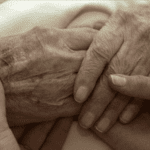
Facing the reality of a loved one's terminal illness can be a challenging and emotional journey. As a hospice registered nurse case manager, I understand the importance of providing compassionate and clear information to empower patients, caregivers, and families. In this article, we'll explore how you, as a family member, can use your own observations and senses to recognize the signs that your loved one may be in the terminal stage of their illness. Remember, while medical professionals have their tools, your observations and intuition significantly matter.
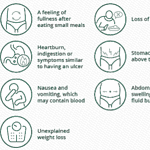
Coping with a loved one's stomach cancer diagnosis can feel overwhelming. As a hospice registered nurse case manager, I am here to provide you with vital information to navigate this journey. This guide is designed to equip you with knowledge, allowing you to care for your loved one with empathy and compassion, prioritizing their comfort and overall well-being.
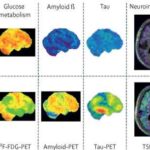
One of the tools doctors uses is called an FDG PET scan. It’s a special kind of test that takes pictures of the brain. FDG is a type of sugar, and PET stands for Positron Emission Tomography. When someone has a PET scan, they get a tiny amount of this sugar injected into their body. Because the brain uses sugar as fuel, the scan can show which parts are working well and which parts aren’t.
This is super helpful because in people with dementia, some parts of the brain don’t use sugar the same way healthy parts do. So, the scan can show doctors these changes and help them understand what’s going on.

I know that the journey you and your loved one are on can be challenging, especially when facing a terminal illness. As an experienced hospice nurse caring for terminally ill patients, I want to provide you with some valuable insights on a common issue that may arise during this time: contractures.
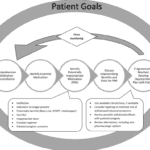
In this article, we will discuss how to use the Beers Criteria to identify PIMs and potential prescribing omissions (PPOs) in hospice patients. PPOs are medications that are indicated but not prescribed for a specific patient or population, or that are prescribed at a suboptimal dose or duration. We will also present 10 case studies to illustrate the medication reconciliation and deprescribing process and the outcomes of medication changes in different scenarios.
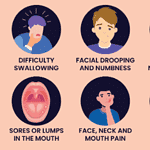
As a hospice registered nurse case manager, I understand that the journey through Parotid Gland Cancer can be challenging for both patients and their families. In this guide, I aim to provide clear and compassionate information to help you comprehend what to anticipate during the disease and how to offer the best possible care for your loved one. Remember, you are not undertaking this journey alone; I am here to offer unwavering support every step of the way.

Caring for someone with dementia requires understanding and a heart full of compassion. This guide highlights the importance of patience and empathy and their profound impact on enhancing the lives of those with dementia.

Discover effective non-pharmacological methods to manage shortness of breath in hospice care. Learn about positioning techniques, breathing exercises, and environmental adjustments that can comfort and relieve patients experiencing dyspnea, enhancing their quality of life during end-of-life care.
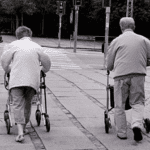
Elopement is when a person with dementia leaves a safe area, like their home or care facility, without supervision. This can be intentional or unintentional, and it's important to address to ensure the safety of the patient. If your loved one is attempting to escape from a memory care facility, there are steps you can take to support both them and the facility.
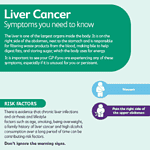
Liver cancer can significantly affect your loved one's health and well-being. As a hospice registered nurse case manager, I'm here to help you understand what to expect during this journey and how to provide the best care possible. Remember, I'm here to offer guidance and support every step of the way.
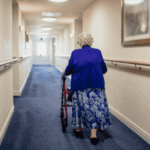
This article will try to help you cope with this challenge. We will give you some information and advice on how to:
Prepare for the transition to a nursing home
Support your loved one during and after the move
Take care of yourself and your family.